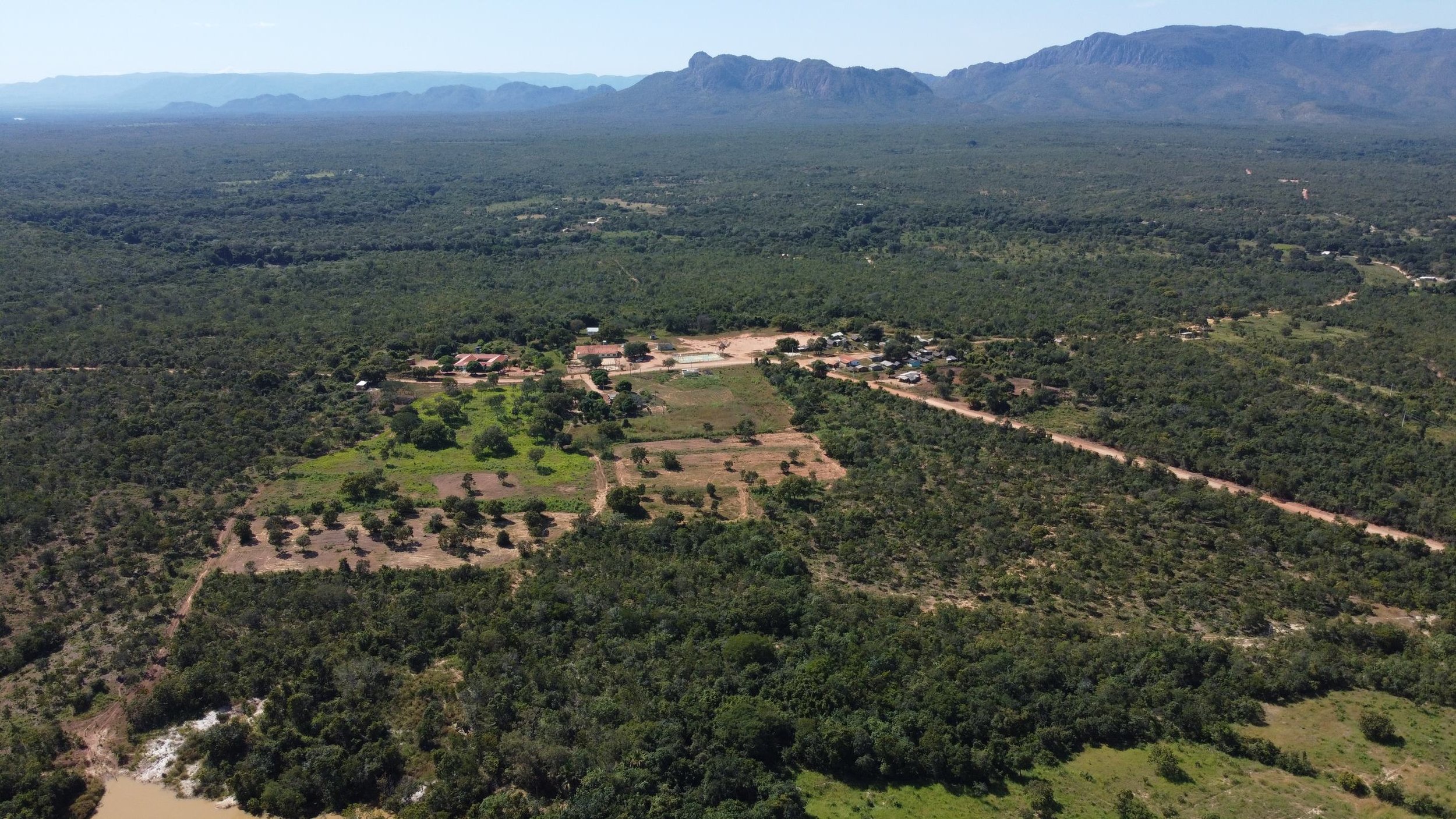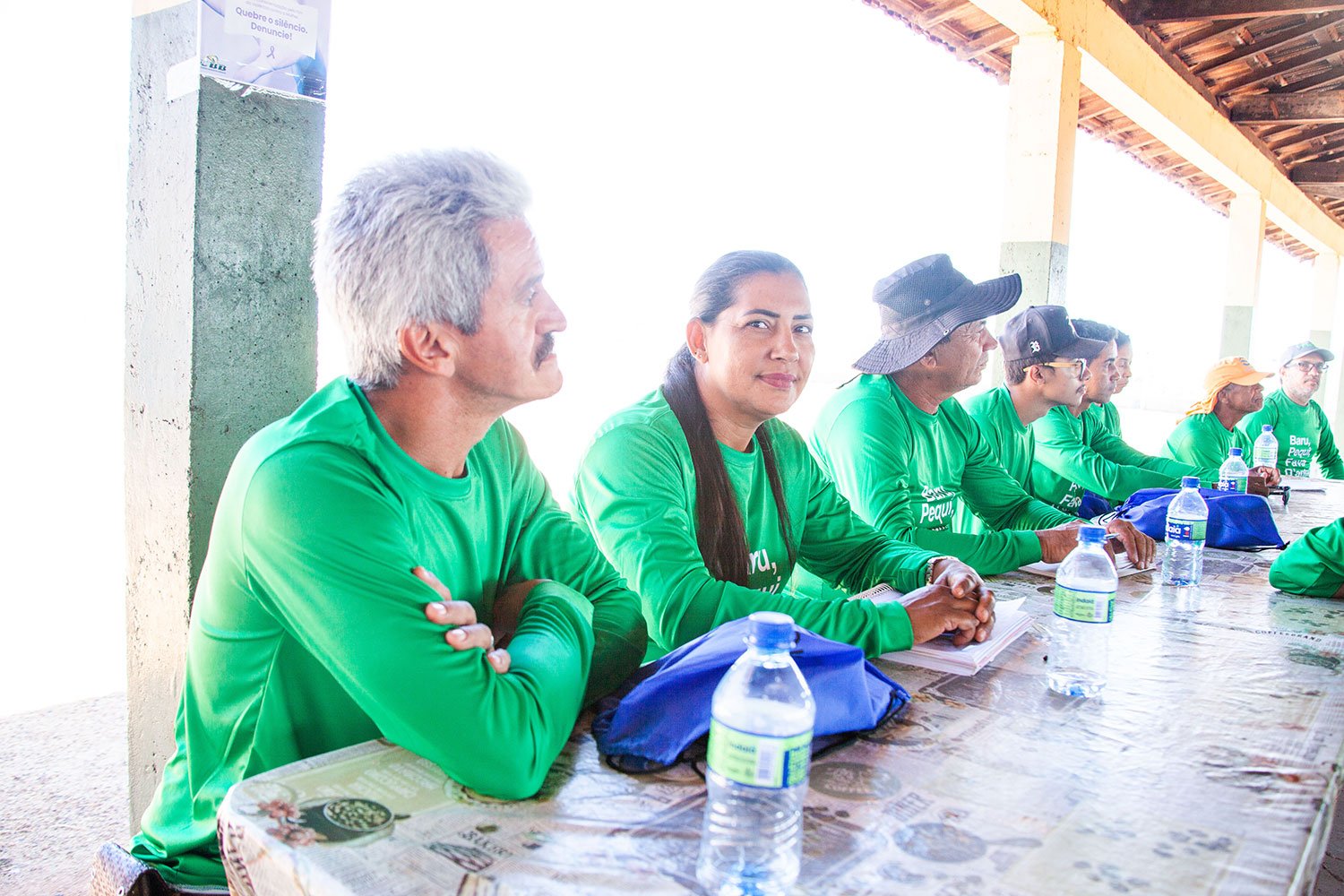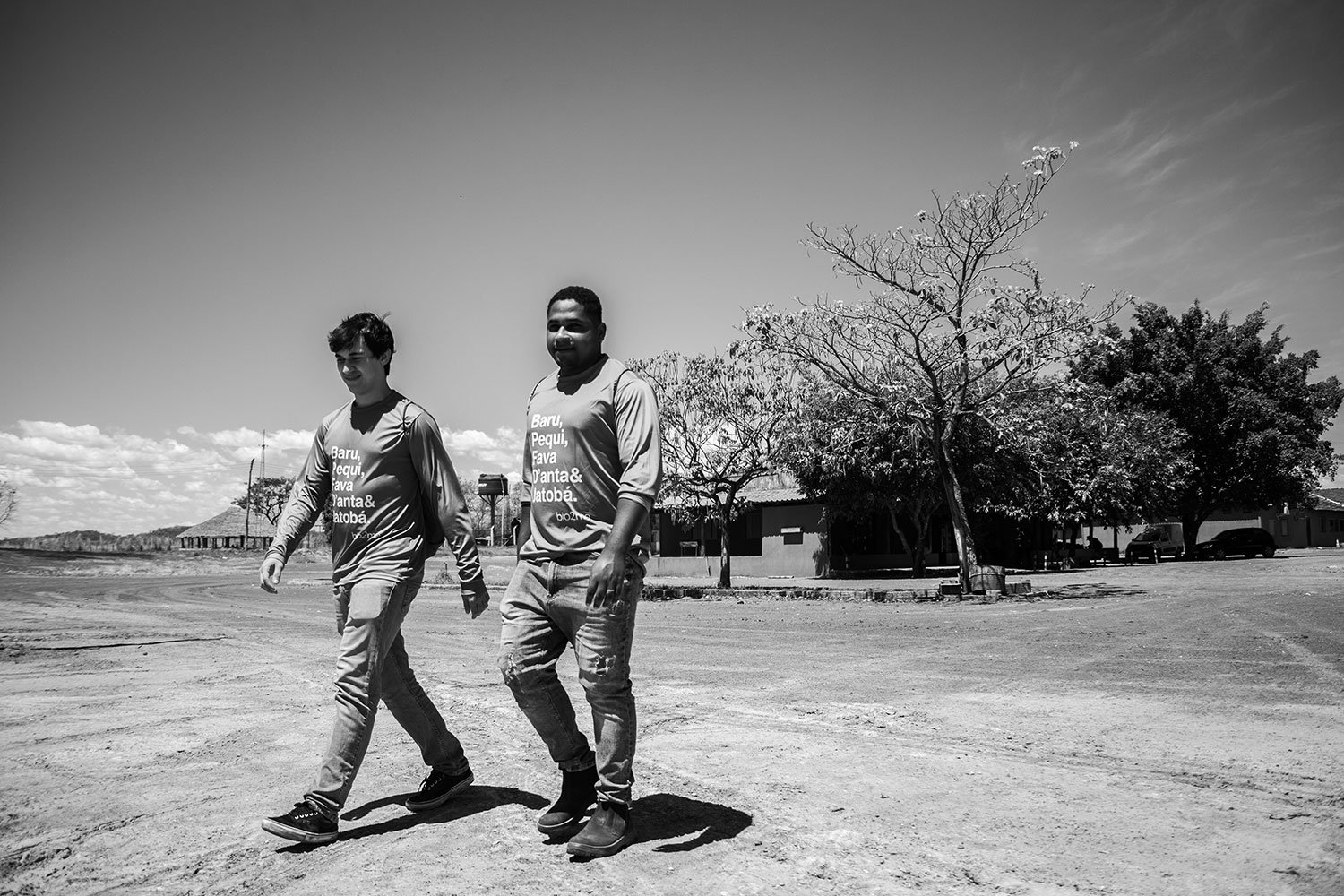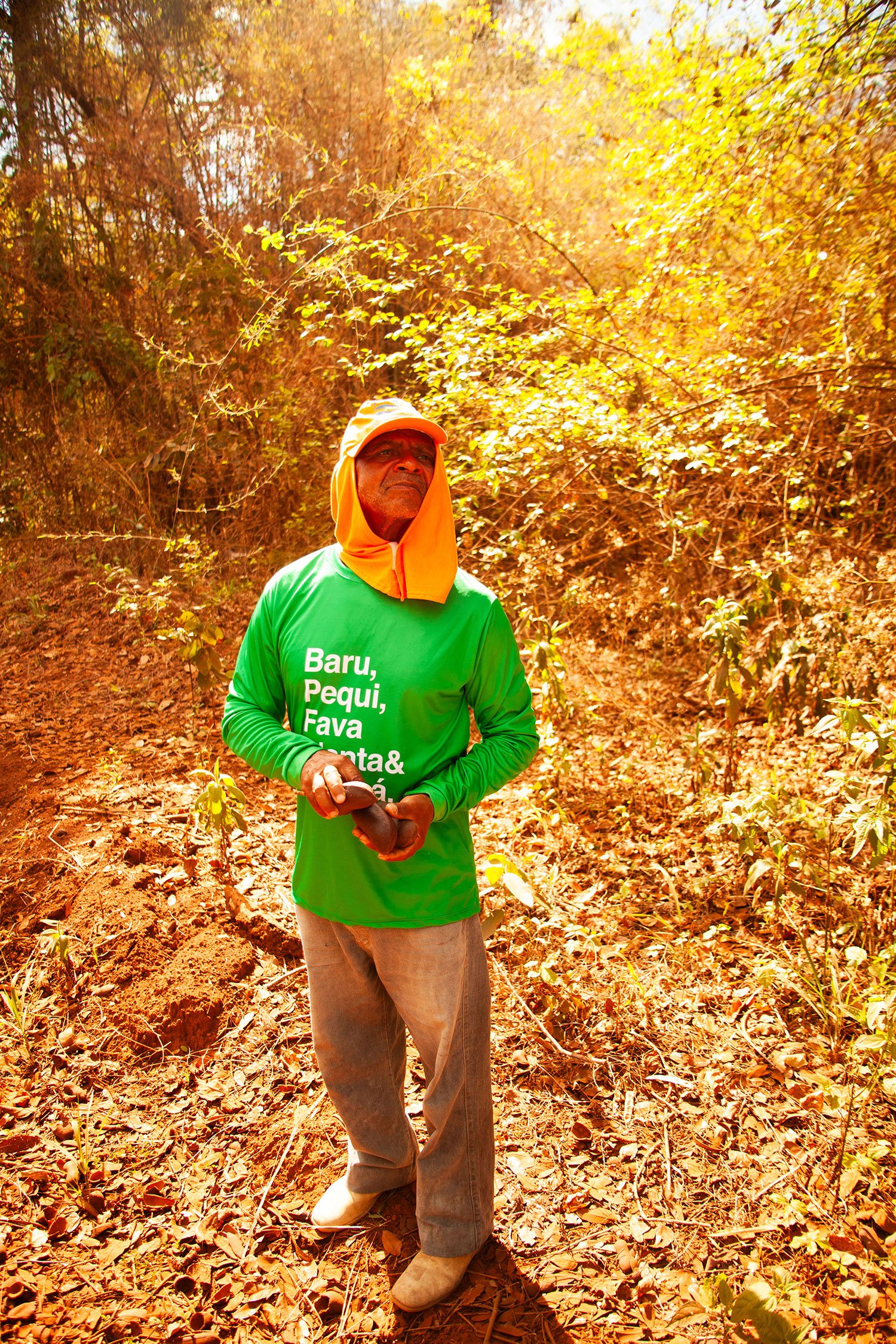A Sustainable legacy
Selected for the Sustainable Soy for the Cerrado Program, Bio2Me turned a family inheritance into a bio-assets export initiative
Photos: Bio2Me archives.
Claudio Fernandes couldn't imagine that the nuts he bought close to home were growing in abundance just kilometers away, on the farm his father had kept for over 40 years, and which he inherited, in the interior of the state of Goiás. Founder and CEO of Bio2Me, the electrical engineer left a successful career in multinationals in the IT sector to fund a startup that could grow, gather, map, and market environmental assets. Bio2Me aims to generate value and income from conserved areas using ingredients known as bio-assets, helping to preserve native vegetation in one of the country's most threatened biomes – the Brazilian Cerrado.
The initiative was born out of a desire to make it financially feasible to keep the native forest standing on the family farm he had inherited. Selected in the 5th round of the Sustainable Soy for the Cerrado Program, which grew out of a partnership between AgTech Innovation and the Land Innovation Fund, with strategic support from Cargill, CPQD, Embrapa and Embrapii, Bio2Me aims to detect potentials in each area on the farm and suggest solutions to produce, manage and sell native Cerrado fruits and seeds.
In Brazil, nearly 50% of the land on farms listed in the Rural Environmental Registry (CAR) is covered by native vegetation, an area equivalent to 26.7% of Brazil's entire territory, according to data from Embrapa. Claudio's family farm is one of more than six million landholdings (CAR 2021 data) tackling the challenge of how to generate income from standing forests and help conserve the biome with the country's highest rates of recent deforestation.
"My father preserved that area for many years, so I thought I should keep it that way, but I needed to figure out how to make money from preserving it. We were swimming against the current, since the generation that moved into Central-Western Brazil in the 70s and 80s was motivated to clear land for large-scale farming. We want to do the opposite," says Claudio.
Claudio used to work in project development for startups, and today he uses his experience from that innovation ecosystem to come up with solutions to optimize work in the field. Using drone technology, artificial intelligence, and the Internet of Things (IoT), Bio2Me can detect the potential of each area on a farm, from crops to conserved areas, identify available trees, plant seedlings, manage assets, coordinate harvest routes and seed storage, and manage the sale of these goods on domestic and international markets.
The startup's business design emerged from an analysis of market demands and bottlenecks. For Bio2Me, the entire bio-asset value chain must be structured to meet large-scale orders. Today, most bio-assets are picked by small farmers and traditional communities, who are unable to guarantee the delivery of loads of available fruit in consistent quantities.
More investment is needed in technology, seedling management, technical training, and even personal protection for professionals working on farms. Bio2Me's solution is to integrate investments in research and technological development, labor training and logistics.
Roadmap:
Since 2020, with the support from Embrapa, the startup has been researching and developing a value chain for assets native to the Cerrado such as baru, souari, vanilla, copaiba, courbaril and fava d'anta, all grown in crop-livestock-forestry (ICLF) systems. Upon joining the PSSC, Bio2Me boosted its investments in innovative solutions to manage chains end-to-end and scale up new businesses. The startup's plans also include several technical training courses for pickers to do their work more efficiently and safely.
Participating in the program allows startups to connect with research centers and farmers, who contribute directly to building solutions for the business. "The invitation to take part in the PSSC made us realize that we are agro. We don't work with livestock or soy, but we can listen and learn from farmers' pains. Being open minded is fundamental to expand the perception that preserved areas can generate income, and that it makes more sense to preserve them," he explains.
Through the Sustainable Soy for the Cerrado Program, Bio2Me has launched pilot projects on three Cerrado farms – all of which are members of For Farmers, a project that also works with the PSSC to bring agriculture into the innovation ecosystem. The startup has also partnered with Embrapii to design an automatic baru nutcracker, now under development at the research facility of the Federal University of Paraíba.
"Our PSSC offers participants the funding, technology and know-how they need to find innovative solutions for sustainable agricultural development, with no deforestation or conversion of native vegetation," explains Ashley Valle, director of the Land Innovation Fund. "The participation of members of For Farmers, researchers in the Cerrado Fellowship and our strategic partners – Cargill, CPQD, Embrapa and Embrapii – brings all the links in the agricultural supply chain together for positive outcomes in the field," she adds.
Bio2Me's pilot units have a variety of profiles and challenges. Embrapa's model farm, Fazenda Barbosa, in Maranhão, will collect nuts to be processed into pulp to supplement animal feed. In Diamantina, Mato Grosso, a farm run by Ligia Pedrini will train 20 employees to plant baru trees starting in July 2024. In Tocantins, Walter Van Halst's farm already manages bio-assets sustainably in conserved areas and uses baru to complement income for the farm. Bio2Me has already delivered a thousand seedlings to expand his plantations.
Bio2Me has invested in expanding its work with seeds and structuring its logistics capacities. It rented a storage warehouse in Vila Boa, Goiás, and is now marketing these assets in São Paulo. The seeds will also be available soon in emporiums in Rio de Janeiro and Goiânia.
The startup's focus, however, is the international market. Bio2Me is a partner of the Arab-Brazilian Chamber of Commerce, representing one of the world's largest markets for nuts and peanuts. They still need stock, however, to make this commercial leap: "It will take us five to seven years to have large enough stocks to supply an international market. So we continue to buy from the communities and offer socio-environmental training to ensure they can gather enough," adds Claudio.




